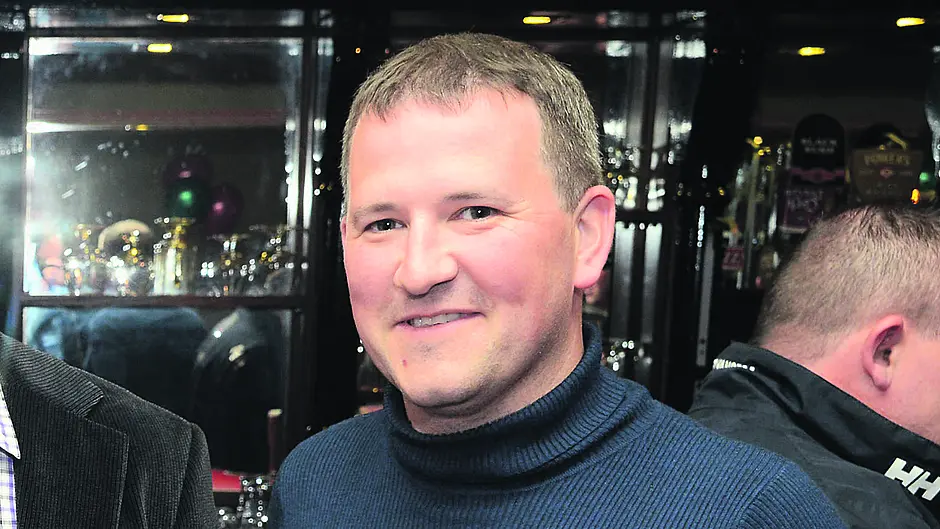Court of Appeal president Mr Justice George Birmingham said texts found on phones alone provided ‘powerful support’ for the belief that the devices belonged to the Bandon architect
BY EOIN REYNOLDS
BANDON man Graham Dwyer has failed in his bid to overturn his conviction for murdering vulnerable childcare worker Elaine O’Hara, almost eight years to the day after he was found guilty by unanimous jury verdict.
President of the Court of Appeal Mr Justice George Birmingham delivered the judgement of the three-judge court, dismissing all grounds of appeal including a claim by Dwyer’s lawyers that the use of call data records at his trial should lead to a retrial.
‘In this case, we are quite satisfied that the admission of the very limited call data evidence that was admitted could not conceivably be regarded as giving rise to a miscarriage of justice,’ said Mr Justice Birmingham.
He added that even if the evidence should not have been admitted at his trial, it was of little significance, given that the prosecution was able to establish through other evidence that the phones, which contained evidence of his plan to murder Ms O’Hara, belonged to Dwyer.
Lawyers for Dwyer (50) had argued that the retention of mobile phone data used in the case was an ‘opportunistic form of mass surveillance’ that transforms phones into tracking devices that can reveal a detailed picture of every aspect of a person’s life.
Dwyer denied being the person who bought and used a phone found in Vartry Reservoir, Co Wicklow, to send messages regarding stabbing to Ms O’Hara and denies sending a text telling her to ‘go down to the shore and wait’ on the day she was last seen, August 22nd, 2012.
Dwyer was convicted by a jury at the Central Criminal Court in 2015 of the murder of the 36-year-old.
His victim had been discharged from a mental health hospital hours earlier. Mr Justice Tony Hunt sentenced Dwyer to the mandatory term of life imprisonment for what he said was a ‘chilling and premeditated murder’ carried out after a ‘protracted campaign of the most vile manipulation and abuse of a woman too weak to resist.’
Dwyer fantasised about stabbing a woman during sex and used Ms O’Hara to fulfil his fantasy. After murdering her, he disposed of some of her belongings in Vartry reservoir and tried to make it look like she had committed suicide.
He dumped her body in a forest where it was found in 2013.
Much of the evidence at Dwyer’s trial focused on text messages between a ‘slave’ phone used by Ms O’Hara and a ‘master’ phone used by Dwyer and on the movements of those phones.
In relation to the mobile phone evidence, Mr Justice Birmingham listed the five phones that were relevant in the trial. Two were attributed to Ms O’Hara and the other three to Dwyer.
Prosecution counsel Sean Guerin had argued at a previous hearing that the case relied on ‘traditional detective work’ rather than the use of the disputed phone data records to show Dwyer was the user of the relevant phones and sent multiple texts about his desire and plan to stab and kill Ms O’Hara during sex.
‘The first point was that he [Dwyer] was the author of the text messages and connected to Ms O’Hara,’ said Mr Guerin. ‘The second thing we sought to do was to show the desires expressed in the text messages were real and reflected the intention to kill.
‘Thirdly, that the circumstances of Ms O’Hara disappearance and death could only be explained by the realisation of that intention. The fourth element was to eliminate any other possibility, in this case suicide, as an explanation.’
Mr Guerin said one text from Ms O’Hara to the phone attributed to Dwyer read: ‘You’re now a daddy again.’ At the trial, the child’s birth-certificate matched the date of the text, which the DPP said proved it was Dwyer who was using the phone.
Counsel said that on April 4th, 2011, the phone attributed to Dwyer texted saying he had a committee meeting at Shankill Flying Club and a witness gave evidence and produced minutes proving Dwyer’s attendance at the same meeting.
On another date the phone attributed to Dwyer complains in a text of an almost €4K bill to fix his car, which documents produced in court corroborated. Similar texts regarding buying a new bike, an email query to a tattoo parlour, entering a model plane flying competition, getting a wage reduction and a reception at the Polish embassy, were also all corroborated by witnesses or documents at trial, said Mr Guerin.
Mr Guerin asked if there could be ‘any other person in the world’ with a child born on the same day Dwyer’s child was born, who also bought a bike on the same day Dwyer did and whose car bill, pay cut, flying competition entry, and attendance at a reception at the Polish Embassy all matched the dates of the texts referencing them.
Mr Justice Birmingham said those texts alone ‘provide powerful support’ to the prosecution case that the two phones in question could be attributed to Dwyer.









